Five sustainable vineyards in the Chesapeake Bay watershed
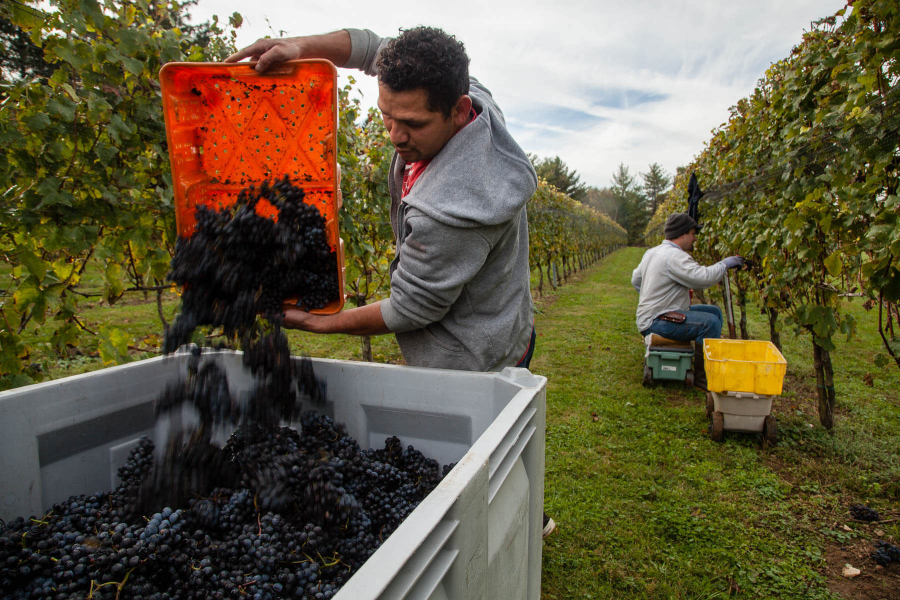
When you think of agriculture in the Chesapeake Bay watershed, vineyards might not be the first type of farm that comes to mind. But as a growing industry with a lot of land being managed, vineyards can be just as important to environmental protection as traditional farms. Sustainable practices on these properties—such as capturing stormwater runoff, using water and energy efficiently, reducing waste and providing wildlife habitat—protect local waterways while allowing the owners to produce delicious, home-grown wines.
Happy Valley Vineyard & Winery - State College, Pennsylvania
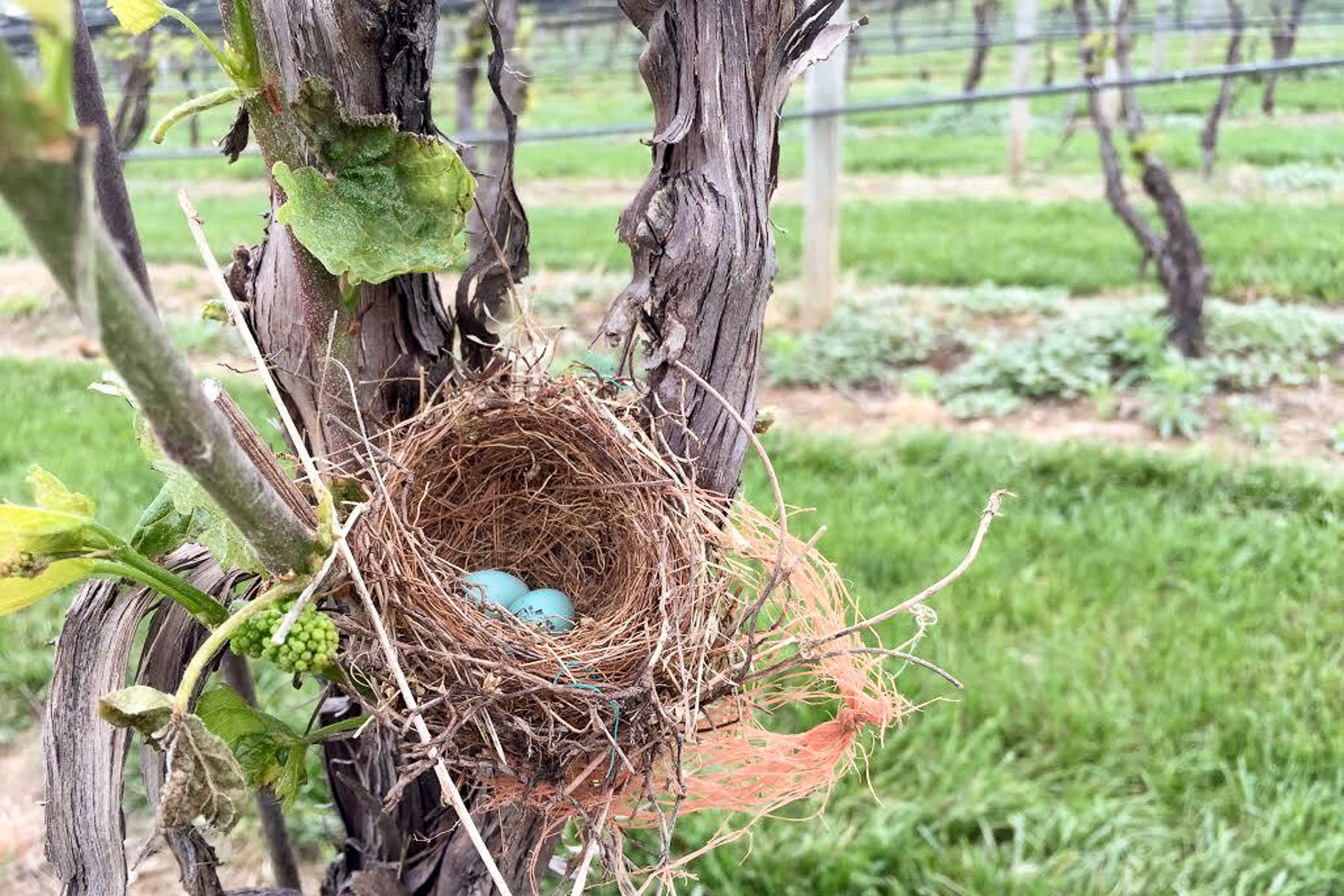
Happy Valley Vineyard & Winery in State College, Pennsylvania keeps sustainability at the center of everything they do. In the tasting room, materials like glasses and bottles are locally sourced, the siding of the buildings are made of recycled materials and the floor is made out of local green ash. Eighty percent of the winery and tasting room is powered by solar panels on the property, and to conserve that energy, the vineyard uses well water to cool their wine tanks instead of traditional refrigeration. Out in the field, the layout of the vineyard takes advantage of prevailing winds to dry out foliage after rain, limiting the use of fungicides and heavy machinery. The team manages insects in a way that encourages predator populations to flourish so that they can use fewer applications of insecticides. All of these practices help the vineyard grow over 15 varieties of grapes on their 9.5-acres.
DuCard Vineyards - Etlan, Virginia
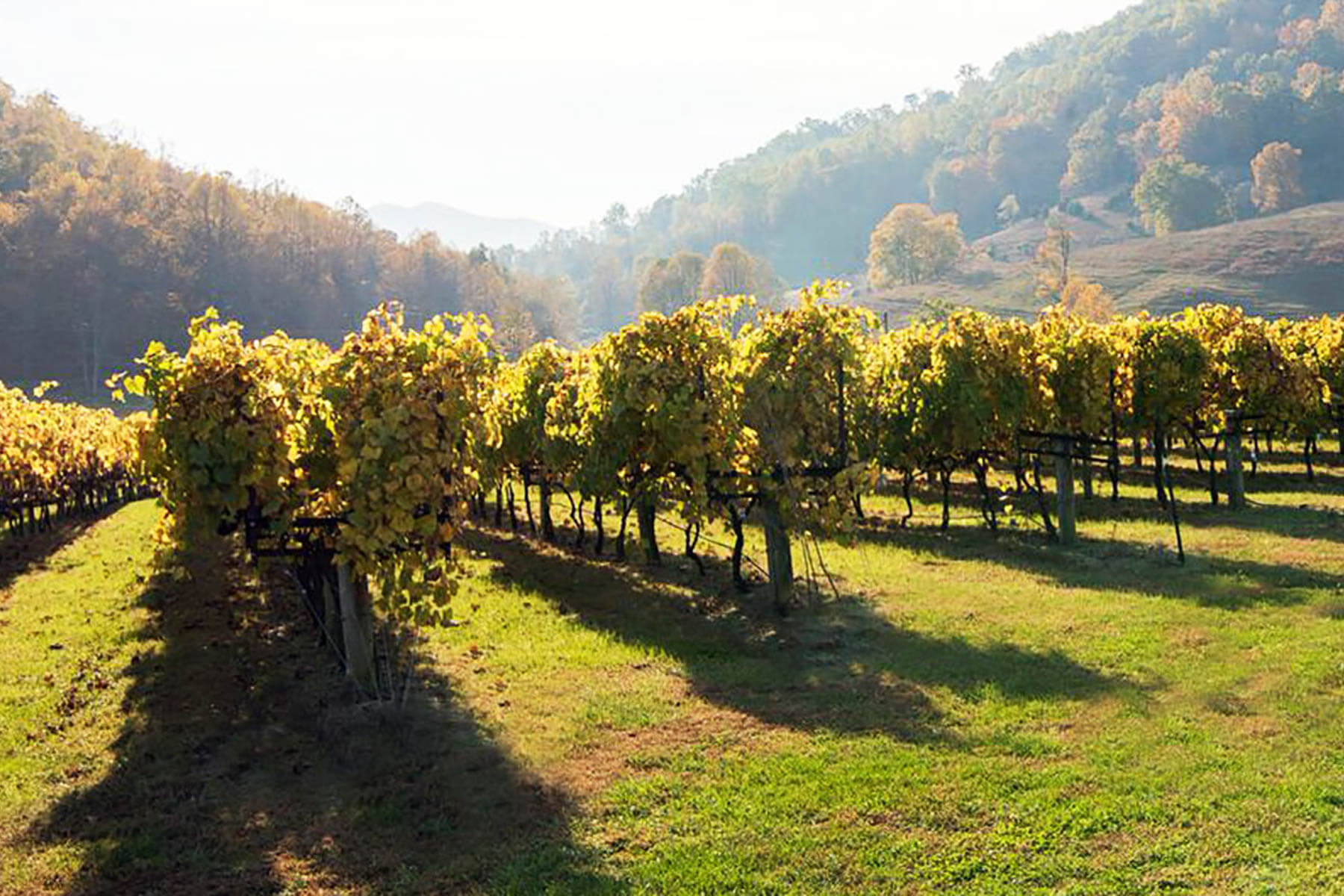
DuCard Vineyards has won several awards for their stewardship efforts including the Virginia Department of Environmental Quality’s Greenest Winery In Virginia award in 2010 and 2015, and a Virginia Green Star Travel award in 2021. The Vineyard uses organic growing techniques in their fields whenever possible, including the use of clover as cover crop, which adds nitrogen to the soil and reduces sediment and fertilizer pollution. These types of cover crops also absorb excess moisture which helps to reduce disease on the grapevines, a common issue for vineyards. To diversify the ecosystem, DuCard has installed pollinator gardens, an artificial wetland and a riparian buffer near their stream, all of which helps to control pests and limit runoff. The tasting room is made of green and recycled materials, and the entire winery is powered by solar panels. To encourage tree planting in the region, DuCard has partnered with Friends of the Rappahannock to host Sipping for Saplings, an event where customers receive a free native redbud tree when they purchase one or more wine bottles.
Sunset Hills Vineyard - Purcellville, Virginia
At Sunset Hills Vineyard in Purcellville, Virginia, 75% of the vineyard's energy is produced by solar panels and customers with electric vehicles can charge their cars while they enjoy a glass of wine. Certified wildlife habitats including bluebird trails, pollinator gardens and monarch waystations were added to the property in partnership with Loudoun Wildlife Conservancy. These habitats encourage a diverse range of wildlife to visit the property, which has greatly reduced the need to use pesticides. In fact, Sunset Hills has completely stopped wide-scale sprays on their property.
Black Ankle Vineyard - Mount Airy, Maryland
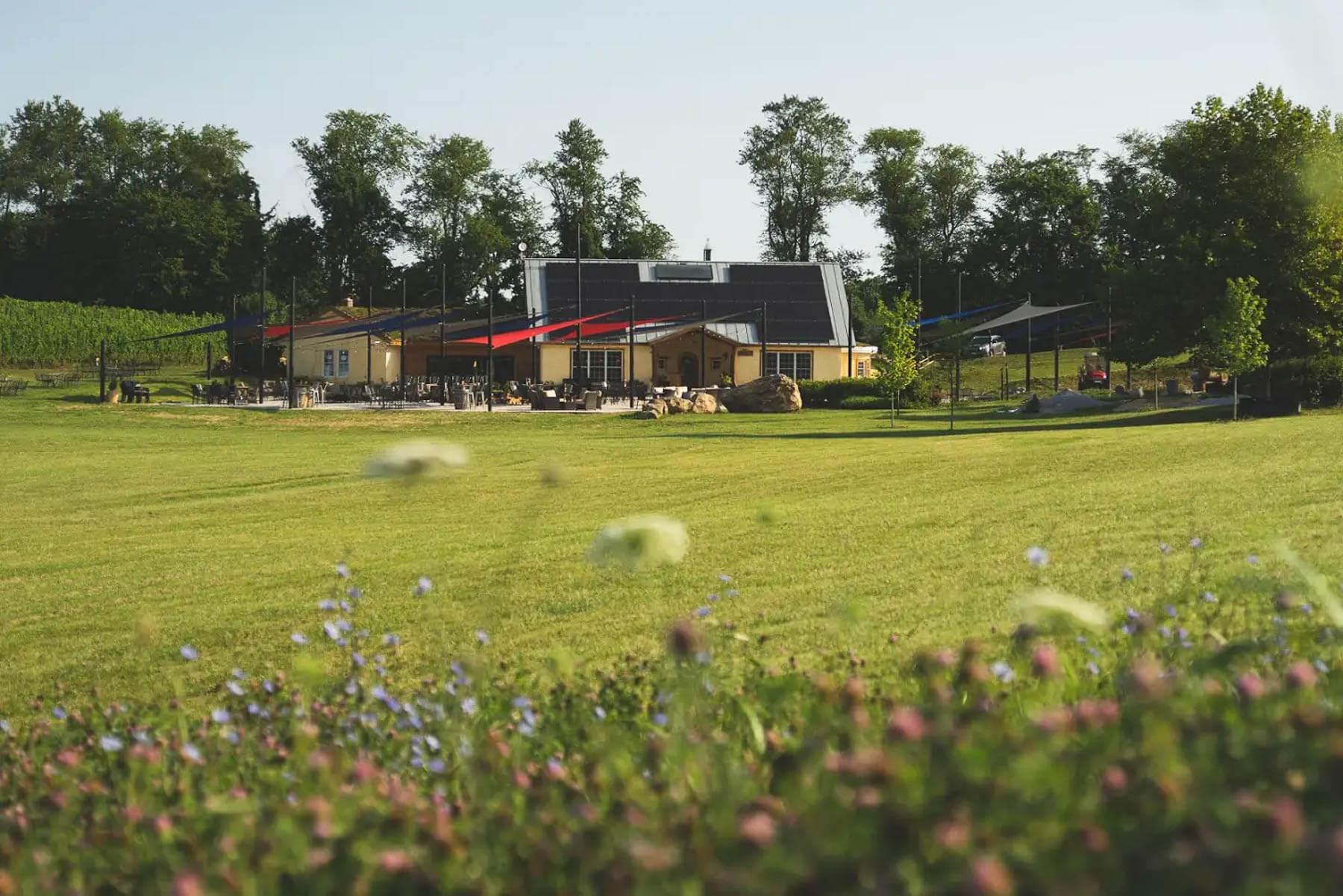
When the owners of Black Ankle Vineyard opened up their business in 2002, they decided to do everything they could to leave the western Maryland property better than they found it. Many of the building materials, like lumber and straw, were sourced from the property, solar panels were installed to power the winemaking operation and window overhangs were incorporated to limit the need for air conditioning. Out in the fields, strategic pruning is used to increase airflow and sunlight to keep vines dry and reduce the need for fungicide sprays.
Boordy Vineyards - Hydes, Maryland
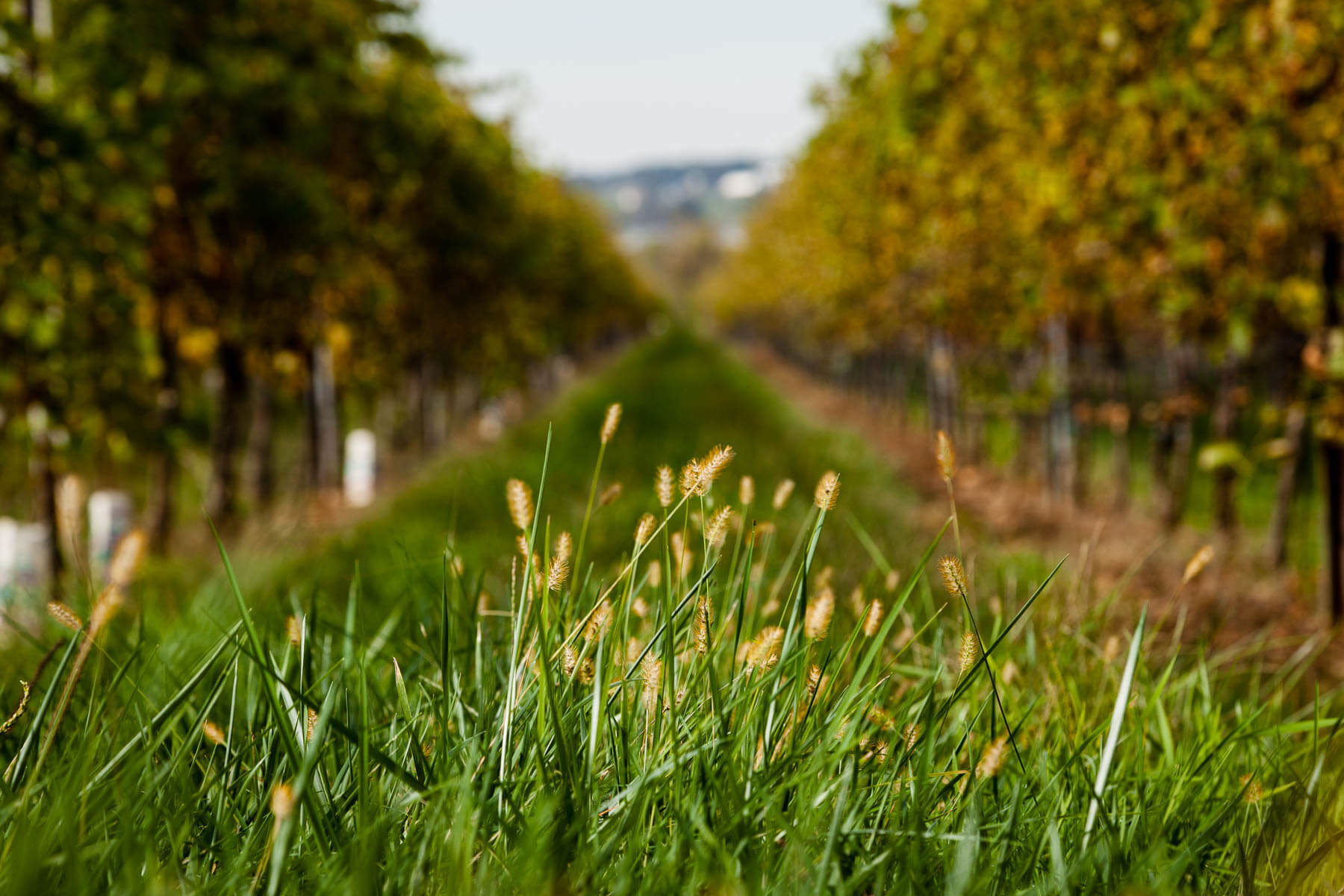
A suit of sustainable practices are in place at Boordy Vineyards, which consists of a location in the Piedmont Plateau and another in the western Blue Ridge Mountains. Pruning and thinning is done to manage disease issues without the use of chemicals, grass grown between the crop rows stabilizes the soil and mitigates runoff, and at the Piedmont location, an artificial wetland captures runoff that flows near the adjacent stream. Boordy Vineyards also reduces their greenhouse gas emissions by using the carbon dioxide created in the fermentation process to stir their red wine tanks. The Vineyard’s founders, the Deford family, have lived in Maryland for twelve generations. To protect the region’s beauty, they have put their property into conservation easement through the Maryland Environmental Trust.
The next time you catch yourself dreaming of a great glass of wine, remember that some are made right here in the Chesapeake Bay region. Have any sustainable vineyards you would add to this list? Let us know in the comments below!

Comments
Sustainability is more important now than it ever has been.
Also, Wine is Food.
Thank you!
Your comment has been received. Before it can be published, the comment will be reviewed by our team to ensure it adheres with our rules of engagement.
Back to recent stories